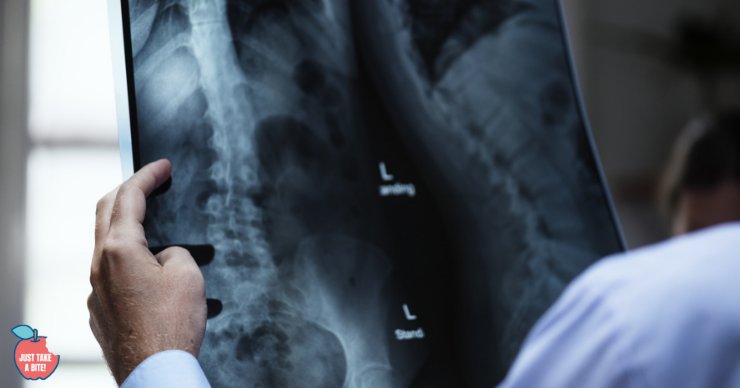Wondering if you are Vitamin D deficient? Most people think they are these days. But before you start taking supplements consider the potential risks. Is Vitamin D supplementation really good for you?

Vitamin D. You certainly hear a lot about it these days.
As in everyone is all of a sudden deficient.
Whether you are into natural health or you stick to western medicine, Vitamin D supplementation is constantly growing in popularity. It’s a miracle cure for everything it seems.
But before you nod your head in approval and accept that we all need more, let’s take a deeper look at this essential “vitamin.”
What is Vitamin D?
The first thing you need to understand is that Vitamin D is not a vitamin at all. It is a hormone, or pre-hormone some say. More specifically it is a group of secosteroids. I will still refer to it as Vitamin D throughout the post, but it is really hormone D.
Vitamins are nutrients the body can not create; that you must ingest. Vitamin D, however, is synthesized by the body when sunlight hits your skin. Your body creates it. Just like your body creates estrogen, testosterone, progesterone, etc. We don’t load up on “high testosterone foods.” We might eat foods that help our bodies create testosterone. Or there may be other ways to help our bodies make the process run smoothly. But we don’t have to ingest a hormone.
That alone should tip you off that nation-wide Vitamin D supplementation is not a good idea.
Should We Consume Vitamin D?
I find it almost comical how much bad information is available on Vitamin D. An article by Everyday Health states:
Nature provides many great sources of calcium, but only a few that are high in vitamin D — including fatty fish, such as salmon and mackerel; fortified foods, like orange juice and milk; and some cheeses, liver, and eggs.
Thankfully, food companies have fortified many foods with vitamin D2, making it possible for anyone, regardless of whether they eat fish or dairy, to get some amount of vitamin D through their diet.
Did they really just say that nature provides fortified orange juice?
Also, if you really read what they just said, you’ll notice a huge point – nature only has a few foods with Vitamin D. If you are into natural health this should be significant. If we are meant to consume large amounts of Vitamin D, it would be in a lot of food. But it’s not.
It is not natural to have access to large amounts of cheese and liver. If a family has a few cows for milk and beef they might make a small amount of cheese and would only have enough liver to eat a few times a year. Just because we now have access to these things on a daily basis does not mean we should consume them that way.
Any nutrient that we are told we can only ingest enough of through supplements is the sign of clever marketing. How did people survive this long if Vitamin D supplements are necessary for health?
In other words, we are meant to get Vitamin D from the sun. Not our food. So get out in the sun. Don’t start popping pills.
Are Vitamin D Supplements Safe?
Vitamin D is fat-soluble. This means excess is stored in fat instead of in water. So extra is not flushed out through urine or sweat. Your body must find a place to store it so as to not create an imbalance in your blood.
So while it seems like a little extra Vitamin D is no big deal…it actually is a really big deal.
Hypervitaminosis D is a very serious condition of toxicity.
Excessive amounts of vitamin D in the body can cause calcium levels in the blood to rise. This can lead to a condition called hypercalcemia (too much calcium in your blood). Symptoms include:
- fatigue
- loss of appetite
- weight loss
- excessive thirst
- excessive urination
- dehydration
- constipation
- irritability, nervousness
- ringing in the ear (tinnitus)
- muscle weakness
- nausea, vomiting
- dizziness
- confusion, disorientation
- high blood pressure
- heart arrhythmias
Long-term complications of untreated hypervitaminosis D include:
- kidney stones
- kidney damage
- kidney failure
- excess bone loss
- calcification (hardening) or arteries and soft tissues
In addition, increased blood calcium can cause abnormal heart rhythms. [source]
Take note that the above says calcium levels rise IN THE BLOOD, not in your bones. Calcium is actually pulled FROM your bones to balance the high levels of Vitamin D in your blood.
I am thankful that many doctors actually test Vitamin D levels these days (though MANY people still supplement blindly). The problem here is that they use faulty ranges. So someone with a healthy Vitamin D level is still told to supplement.
The ideal range of Vitamin D blood level is about 25 ng/mL – 50 ng/mL. This range is linked to the best health outcomes and longest life span. And yet somewhere along the way someone told everyone this isn’t good enough (maybe supplement companies??).
Some doctors now say 50 ng/mL – 100 ng/mL is ideal. There are still others (even in the natural health world) that advise levels above 100 ng/mL!
There is no way that is normal or natural. And definitely no way it is healthy!
Blindly taking Vitamin D supplements is a dangerous practice. And yet so many people do it. They even give it to their kids (multi-vitamins, fortified foods,…).
Is Vitamin D Good for Your Bones?
The common belief is that adequate Vitamin D levels are necessary for strong bones and to protect against osteoporosis.
According to Medical News Today:
Excessive consumption of vitamin D (hypervitaminosis D) can lead to over calcification of bones and hardening of blood vessels, kidney, lungs, and heart.
The human body is smart. It does everything possible to keep a very delicate balance of calcium and Vitamin D in the blood. If you have an imbalance the body will take the extra calcium and store it places you don’t want it and/or pull stores from your bones. So you can get hardened blood vessels and weak bones from too much Vitamin D.
Sadly most doctors prescribe either a high calcium diet or calcium supplements along with Vitamin D to treat osteoporosis. As you may have guessed this does not work. In fact it has the opposite effect, causing more harm than good.
This is a great article showing just how much damage Vitamin D can do.
Vitamin D supplements are also linked to gallstones. Again, the body has to move excess around to maintain balance. It will do this at all costs to stay alive (short-term survival)…even if it creates disease (slow death).

Why We Need Sun Exposure
One big factor in the Vitamin D issue is sun exposure. We NEED sun. That is how we are meant to make Vitamin D – through sun exposure.
But these days people (even kids) spend so much time inside.
On top of that we have all been convinced that we need sunscreen on day and night year round for fear of the big, bad sun.
The sun is such an important part of life and health. My kids and I studied chemistry and physics this past year. One of the first lessons taught to elementary students is that the sun is our source of energy. It feeds the plants. The plants then give that energy to us and to animals (which then give it to us as well). The sun is a vital part of our health.
Somehow we’ve been convinced that sun exposure is dangerous and sunscreen is the answer. Quite backwards.
When you wear sunscreen you prevent your body from producing Vitamin D (nullifying sun exposure).
Not to mention the ingredients in most sunscreens are toxic, actually contributing to skin cancer. Your skin absorbs whatever you put on it. In fact, what you put on your skin may have more impact than what you eat! It is absorbed instantly instead of being filtered through the digestive system. So if you wouldn’t eat the ingredients in your health and beauty products, don’t put them on your skin.
How many people do you know that slather toxic suncreen on every time they go outside to “prevent skin cancer?” Really they are just preventing their bodies from detoxing and from making Vitamin D. The complete opposite of what you want to do to prevent cancer. Maybe that is why everyone feels Vitamin D deficient?
If you are sensitive to the sun, wear sun-protective clothing if you are going to be out for a long time. You should still get in the sun daily for at least a little exposure for adequate Vitamin D.
The only time our family wears sunscreen is if we are going to be outside near water for several hours. And if that is the case we use quality sunscreen without toxins (here is the best list of how over 100 natural sunscreens measure up!).
Our whole family is naturally very fair-skinned. Yet my kids are quite tan! They play outside for hours every day without sunscreen and haven’t gotten a sunburn once.
Does Vitamin D Deficiency Exist?
Although hypervitaminosis D is more common, it is possible to have a truly low Vitamin D level (below 25 ng/mL). But even in this case I don’t believe Vitamin D supplements should be used.
A low Vitamin D level means there are other things out of balance in the body. You need to test and figure out what they are. Hair Tissue Mineral Aanalysis will tell you what other minerals are out of balance to help your body produced proper Vitamin D levels.
How Vitamin D Supplements Ruined My Health
I don’t write all of this to be judgmental or criticize. I write it because I wish someone had written it for me years ago. I wish I wouldn’t have made the mistakes I made.
In 2013 I was really struggling health-wise. I’d been doing the whole real food/WAPF thing for a while, but was still struggling. I finally decided to bite the bullet and see an osteopathic doctor, even though it meant paying out of pocket. She ran all sorts of blood work and did a hair analysis.
The results were quite overwhelming – food intolerances galore, candida, low thyroid, low Vitamin D,…
I wasn’t as knowledgeable back then as I am now. So I just listened and took her word for everything she advised. Food restrictions, tons of supplements…and of course high dose Vitamin D. I think it was 50,000 IU once a week.
I was still breastfeeding, had just come off GAPS (big mistake to do that diet!), my adrenals were shot, and my metabolism was almost non-functional. What I needed was more sleep and more food. Instead I got a super restricted diet, unnecessary supplements, and a lot of anxiety.
My Vitamin D level was 28 ng/mL, which I now know is PERFECT (and where my body tends to settle when I’m feeling my best). Just where it should be. But she had me supplement…and I got my levels up to 75 ng/mL!! So much damage and imbalance from that one recommendation.
In June of that year I had a miscarriage. Following the miscarriage I gained 25 pounds in about three months. I also had to significantly increase my thyroid medication.
I wasn’t sure how it all related. But now I know it was Hypervitaminosis D. It impaired my thyroid and messed up my hormones. It was one of the hardest years of my life, feeling like I was trying to do everything right while quickly seeing my health decline. I could only find ONE picture of myself from that time because I was so embarrassed by my declining health and how I looked. If you’re looking for a quick way to gain weight, add a Vitamin D supplement to your routine!
In 2016 I found a new Nutritional Therapy Practitioner and did HTMA (who also inspired me to become an NTP myself!). Thankfully she was smart enough to advise me to avoid all sources of Vitamin D because supplementing had messed up my calcium so badly.
Three years after stopping the supplements (2019), I was STILL dealing with toxicity from Vitamin D. My hormones and thyroid are still not functioning well. I still have all of the symptoms of hypervitaminosis D.
Now in 2022 my body is finally starting some healing. But we are still suffering the consequences. My body is detoxing through the skin, which is showing up as eczema-like patches. Also, I was taking D supplements before and while pregnant with my youngest daughter. She just had her sixth cavity filled. She also struggles with extreme bone pain in her legs at times. In addition, she had the most severe food reactions and feeding issues as a baby of all of my kids. Not only did the suppelments impact me, they impacted her as well…and still do today!
So if you have been convinced you are deficient in Vitamin D, please reconsider before taking a supplement. Get your levels checked. Are they truly low? If so, treat the root issue. Are they actually high? You need a detox.


My eldest was diagnosed with rickets as a baby. He was on vitamin d drops for a few years. Now he’s 9 and has had lots of cavities. I’ve got arthritis, sore neck, jaw and teeth sensitivity. I’ve been following the vitamin a detox for about 7 months (experimenting on myself before getting my children to do it) but haven’t had much, if any, improvements. I’ve been wondering about vitamin k2 and whether taking that may be important. I’ve heard that detoxing vitamin a tends to increase calcium in the blood. Perhaps k2 will be a buffer against further damage being done?
Yes, K2 is important. I do drops topically. So do my kids. We eat butter too for K2. My best advice is to do HTMA/nutrition restoration to find exactly what your body needs. I’m finding that as we detox the Vitamin A our nutrition needs definitely change and it’s hard to find the right balance. Testing will take the guess work out.
I take a Vitamin D supplement from November through February, when there is not enough sunshine in my latitude to make Vitamin D from the sun. I live in Pennsylvania. I do not take a calcium supplement. By taking 400IU daily only in the winter, I have improved my bone density from “at risk for osteoporosis” to “normal” according to scans.
I also take Vitamin B6 and magnesium to prevent migraines. I had nutritional analysis (blood and urine) that determined I was borderline low in these nutrients, and taking them has helped reduce migraines. But I get them from separate supplements instead of a multivitamin–why take all that other stuff I don’t need?
Sounds like you’ve figured out what your body needs!
Hi Mary , it’s interesting about A vitamin,I’m going to find more info about it . But about D , are you relying on that video ,the link is above ? It’s a bit unprofessional. I have been studying this topic for long time , in different languages, and I was pretty sure about taking D supplements with K2 . Do you have any other studies about D ?
Thank you
From what I understand, not all vitamin D supplements are created equal. Are you talking about D2 or D3? Did you take K2 with it? If not, that could have caused your problems. It sounds like you took way too much. I’ve found that taking a small amount every day (rather than once a week) is really helpful for my energy levels. But of course we’re all different! I did get a basic hair analysis test that said I was low in vitamin D. I try to get sun but I usually forget 😬
I found a book called the Calcium Paradox very helpful. K2 and magnesium are needed with D3. Excellent read. Check your library.
Thank you for the suggestion, Elizabeth. There are definitely some important co-factors when it comes to both calcium and D!!
Were you on D2 or D3?
I don’t remember. Whatever my osteopath recommended. It doesn’t really matter. Either D2 or D3 can cause problems.
It didn’t take me long to realize D supplementing was unhealthy and I went to just getting a little sun every day.
Both low vitamin D and too much give me lower back pain. I have experimented on myself many times to confirm this. Especially dangerous seem to be high vitamin A and low D ratios!
I was reading your blog trying to figure out your more big picture story. Did most of your problems start around 2013?
From the thousands of blogs I’ve read over the years, there are two trends I see. 1. most people’s chronic health nutrition problems start around the age 30 and around 2010-2014. My gut feeling tells me there was some new pesticide or GMO strain chemical released into the world around then that really jacked people over.
My issues started much earlier than 2013. That just happens to be when I finally started to research and take charge of my health.